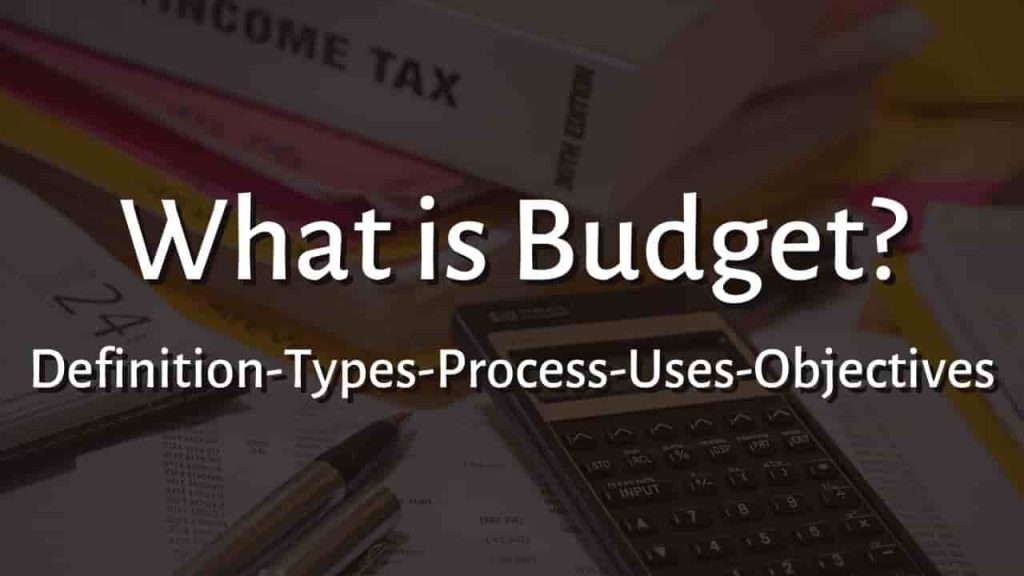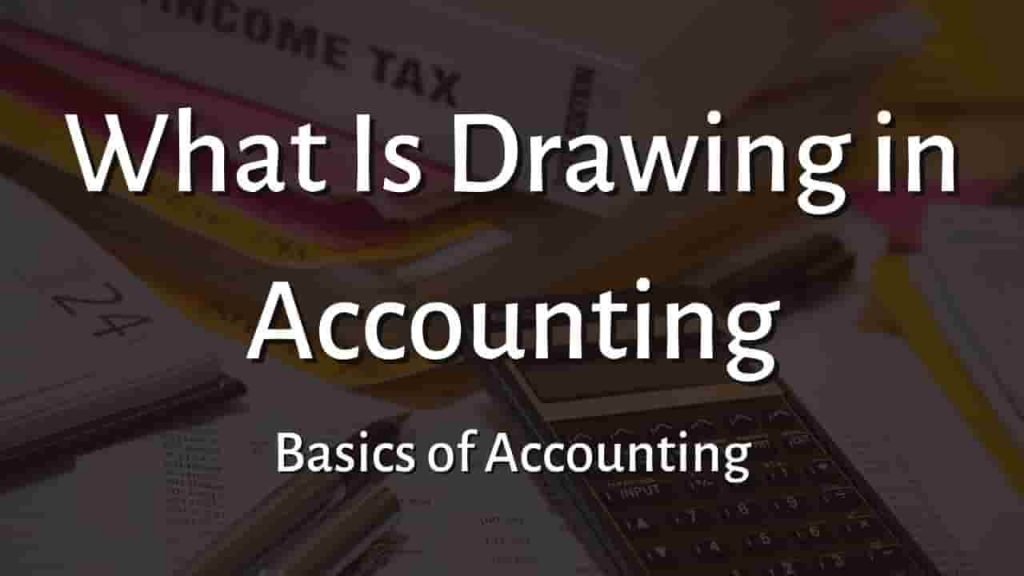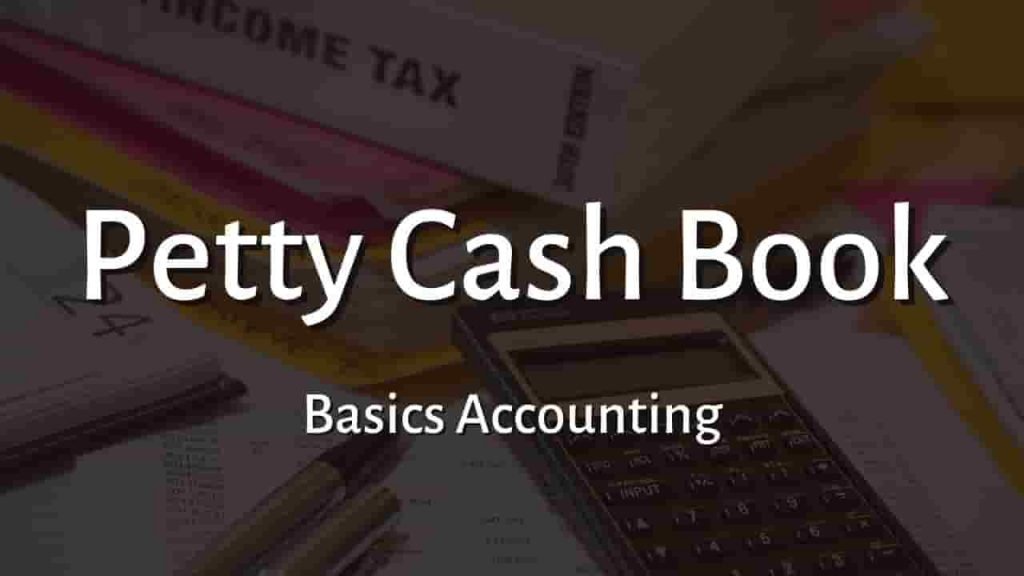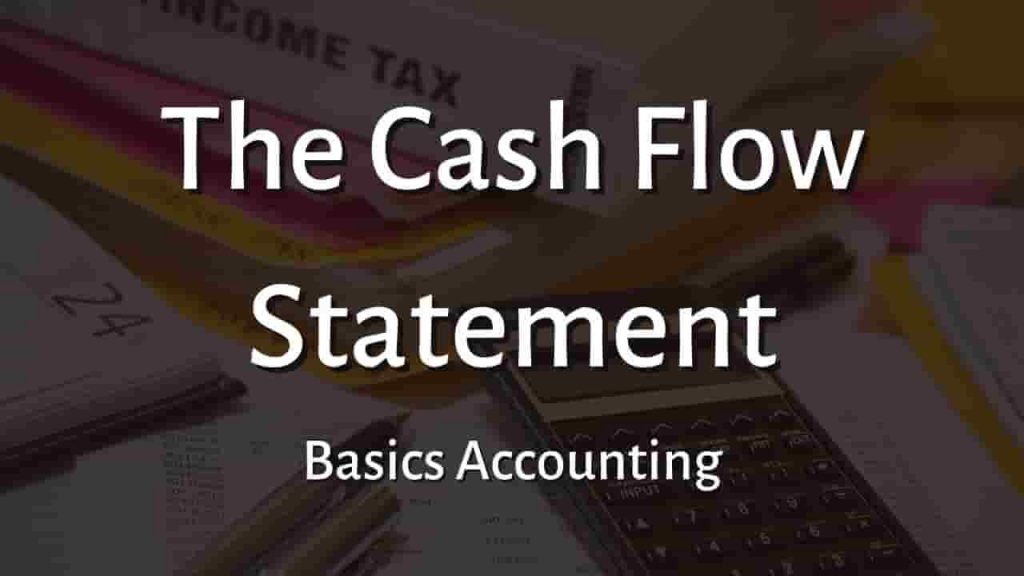What is Budget
A budget is a plan that is represented quantitatively, generally in monetary terms, and covers a defined time period, usually one year. In other terms, a budget is a methodical strategy for allocating manpower and material resources. A budget in a corporate organization indicates an estimate of future expenses and profits.
Types of Budget
Budgets are classified into two types:
Capital Budgets
Capital budgets are allocated to projected expenditures for new projects, which frequently need special funding.
Operating Budgets
Operating budgets are aimed at meeting the organization’s short-term operational goals, such as output or profit targets in a corporation. Operating budgets can be further subdivided into departmental or functional budgets.
Characteristics of Budget
- It is planned ahead of time and is drawn from the organization’s long-term strategy.
- It refers to a future time period for which objectives or goals have already been established.
- It can be stated quantitatively, in physical or monetary units, or in both.
Why Budget is Important for us?
Budgets of various forms are established for various objectives, such as sales budgets and production budgets. Budget for Administrative Expenses, Budget for Raw Materials, and so forth. All of these sectoral budgets are then combined into a master budget, which represents the organization’s overall strategy.
A budget is beneficial to us in the following ways:
1. It improves the efficiency and effectiveness of the organization’s operations.
2. It is a method of conveying plans to various organizational units. Exact duties are given by defining divisional, departmental, and sectional budgets. As a result, the possibility of buck-passing is reduced if the budget estimates are not fulfilled.
3. It is a method of inspiring managers to fulfill the unit’s goals.
4. It acts as a guideline for future operation control.
5. It aids in the development of a team spirit in which budgetary involvement is encouraged.
6. It aids in the reduction of waste and loss by disclosing them in time for remedial action.
7. It provides a foundation for evaluating managers’ performance.
8. It also functions as a tool for managers to be educated.
Budgetary Control
No planning system can be successful unless it is supported by an effective and efficient control system. Budgeting and control are inextricably linked. Budgetary control refers to the exercise of organizational control by the use of budgets.
Process of Budgetary Control
The budgetary control process consists of the following steps:
- The development of multiple budgets
- On-going comparison of actual and budgeted performance.
- Budget adjustment in light of altered conditions.
A budgetary control system should not become inflexible. There should be enough leeway to allow for individual initiative and desire. Budgetary control is a crucial tool for increasing the organization’s overall efficiency. It is a crucial instrument for cost control and accomplishing overall goals.
Installation of Budgetary Control System
After you understand the definition and relevance of budgetary control in an organization, it will be important for you to understand how a budgetary control system may be built in the company. This necessitates, first and foremost, answering the following questions in the context of an organization:
- What is the most likely outcome?
- What may be made to happen?
- What are the goals that must be encountered?
- What are the restrictions, and how may their impacts be mitigated?
After determining the answers to the above questions, the following procedures may be performed to implement an effective budgetary control system in a company.
Organization for Budgeting
The establishment of a specific organizational plan is the first stage in implementing a budgetary control system in a company. A Budget Manual should be produced that defines each executive’s authorities, duties, responsibilities, and areas of operation.
Responsibility for Budgeting
The responsibility for budget preparation and implementation may be assigned as follows:
Budget Controller
Although the Chief Executive is ultimately responsible for the budget program, it is preferable if a significant portion of the supervisory responsibility is delegated to a person designated as Budget Controller or Budget Director. Such a person should be familiar with the technical aspects of the business and should report directly to the organization’s President or Chief Executive Officer.
Budget Committee
The Budget Committee assists the Budget Controller in his task. The Committee may be made up of the heads of several departments, such as Production, Sales, Finance Personnel, Purchase, and so on, with the Budget Controller serving as its Chairman. The Budget Committee is normally in charge of submitting, debating, and eventually approving budget statistics. Each department head should have his or her own Sub-committee, which should include executives who report to him.
Fixation of Budget Period
The term “budget period” refers to the time period for which a budget is established and implemented. The budget period is determined by the type of firm and the control methods used. A seasonal sector, for example, will budget for each season, but an industry that requires extended periods of time to complete tasks will budget for four, five, or even more years. However, budgets for both long and short periods must be prepared for control purposes.
Budget Procedures
After establishing the budget organization and determining the budget period, the real work or budgetary management may be carried out according to the following pattern:
Key Factors
It is also known as a limiting factor. To guarantee that the budget objectives are attained, the level of this factor’s effect must first be analyzed. It would be preferable to construct the budget for this specific element first, followed by the other budgets. We have included an illustrated list of significant criteria in many sectors below:
| Industry | Key Factor |
| Motor Car | Sales Demand |
| Aluminum | Power |
| Petroleum Refinery | Supply of Crude Oil |
| Electro-Optics | Skilled Technicians |
| Hydral Power Generation | Monsoon |
The important elements must be carefully recognized and investigated. The essential variables do not have to be of a permanent kind. In the long run, management may be able to overcome the key factors by introducing new products, changing the material mix, working overtime or extra shifts, and so on.
Budget Forecasting
A budget forecast is an estimate of future financial or operational circumstances. Any estimate is based on the evaluation of probability. A budget, on the other hand, embodies an operational plan or an organization, but an estimate does not. A budget entails a commitment to certain objectives or targets that management hopes to achieve based on estimates.
A forecast, on the other hand, is an estimate based on an event’s likelihood. A forecast can be created in either financial or physical terms for sales, manufacturing costs, or other company resources. Instead of relying on a single projection, a variety of different forecasts may be examined in order to arrive at the most feasible overall strategy.
Preparation of Budget
Budgets are prepared once the forecasts have been finalized. The budget activity begins with the creation of the budget. The production budget is then created based on the sales budget and the available manufacturing capability. The financial budget (cash or working capital budget) will be created based on the sales estimate and production budget.
All of these budgets are merged and coordinated into a single budget known as the master budget. Budgets may be altered during the fiscal term if it becomes necessary as a result of unanticipated changes that have already occurred or are projected to occur.
Fixed Budget Vs. Flexible Budget
Choice of a fixed and flexible budget is also part of the budget process. A budget can be either fixed or static and flexible. Because a fixed budget is based on a set amount of activity, it may lose its efficacy in planning and managing if actual capacity usage differs from what was expected for any given unit of time, such as a month or a quarter. Because it examines fixed and variable expenditures separately, the flexible budget is more suitable for shifting levels of activity.
As you are aware, fixed costs stay constant across a given range of output; nevertheless, fixed costs alter as capacity levels change. If a flexible budgeting strategy is used, variable costs fluctuate in direct proportion to output, and the budget controller may assess the difference between real and budgeted expenses based on the actual level of activity accomplished throughout a certain time period.
Objectives of Budget
- Maximization of profits.
- Sales maximization.
- Volume expansion.
- To compete with rivals.
- New business zones are being developed.
- Service quality.
- Productivity of the workforce
Some Frequently Asked Question about Budget
What is a budget deficit?
A budget deficit happens when spending exceeds receipts and reflects a country’s financial health.
What is budget surplus?
A surplus budget occurs when revenue or receipts exceed costs or outlays (expenditures). A surplus budget is beneficial for the government.
What is the budget balance?
A balanced budget is a financial planning or budgeting situation in which total projected income matches entire planned expenses.
What is a budget variance?
A budget variance is a recurring metric used by governments, organizations, and individuals to evaluate the difference between actual and budgeted statistics for a certain accounting area.
What is budget reconciliation?
If the budget asks for reconciliation, it instructs particular committees to make specific changes to expenditure, revenues, deficits, or the debt limit.
What is the budget used for?
A budget is used to anticipate an entity’s financial outcomes and financial situation for a future time.
What is budget and Why it is important?
Since a budget indicates an estimate of future expenses and profits in a corporate organization. It assures that you will always have enough money for what you need and what is essential to you. Following a budget or spending plan will also help you stay out of debt or work your way out of debt if you are already in debt.
What is a budget Proposal?
A Budget Proposal is a formal document used to properly present the financial budget plan for the organization, a project, or a campaign. This Budget Proposal includes project details, costs, the explanation for the expenses, and a digital signature.
What is the budget report?
Budget reports enable businesses to compare their actual spending to what was budgeted for. You design your budget for a specific time period, and then your budgeting report shows you how much you really spent at the end of that time period.
What is a budget cycle?
A budget cycle is the time period that a budget covers; firms use monthly, quarterly, and/or yearly budget cycles to control expenditures and streamline administrative tasks.
What is budget forecasting?
A budget forecast is an estimate of future financial or operational circumstances. Any estimate is based on the evaluation of probability.
What are the types of budget?
Budgets are classified into two types: capital budgets and operating budgets. Capital budgets are allocated to projected expenditures for new projects. Operating budgets are aimed at meeting the organization’s short-term operational goals.
For more click here and if you are looking for full forms of different acronyms and words then check out this list you really gonna find this helpful. We also have an Essay on every topic, Check the complete list here. If you are Studying in Matric Free Video Lectures of Maths, Physics and English are here, and we have got you covered for I.COM Business Maths also.







